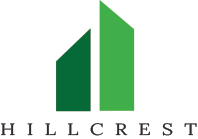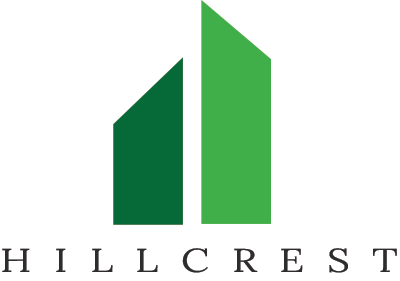In planned communities, HOA noise can cause disruptions and lead to frustration among residents. Homeowners associations should work to maintain a peaceful environment and keep residents satisfied. On the other hand, homeowners should know what to do when faced with a noise problem.
How to Manage HOA Noise Complaints
Living in an HOA-managed community tends to be more peaceful and organized. This is one of the perks of living in an HOA. Things can quickly go downhill when a neighbor begins to blast music at 3 a.m. or revs up their engine for a midnight race. Noise is a regular part of a neighborhood, but board members should know how to handle noise complaints when they encounter them.
Here are the key steps for managing HOA noise complaints.
1. Establish HOA Noise Rules
First of all, homeowners associations should have noise rules for residents to follow. These rules should define quiet hours and acceptable noise levels within the governing documents.
If an HOA currently doesn’t have a noise policy, it may need to amend its governing documents to include one. This typically requires a vote from the membership to pass.
2. Educate Residents
It is important to educate residents on the HOA’s noise rules and the Chicago noise ordinance. This includes complaint procedures, quiet hours, and possible penalties for violations of the noise rules.
Additionally, board members should encourage residents to respect each other. This can prevent disputes among neighbors and within the community at large.
3. Implement a Formal Complaint Process
Board members should implement a standard and structured complaint process. This helps ensure fairness and consistency when it comes to enforcing noise rules. An HOA should outline clear steps for residents to report noise issues, including any required documentation.
4. Enforce Noise Rules With Penalties
It’s not enough to simply have an HOA noise policy. Board members should also enforce this policy by penalizing residents who break the rules. Common penalties include fines, temporary loss of privileges, and even legal action.
Of course, it is important to have these penalties outlined in the governing documents. Otherwise, an HOA would have no authority to use them as enforcement tools.
5. Use Alternative Dispute Resolution
Sometimes, an HOA board can’t resolve the noise issue using internal resolution methods. In such cases, as well as for ongoing disputes, board members are better off using alternative dispute resolution (ADR). This includes mediation and arbitration.
With ADR, neighbors can resolve their conflict with the help of a trained professional. This neutral third party can help homeowners reach a compromise without escalating the issue. Many states even require ADR before anyone can pursue litigation.
Understanding the Chicago Noise Ordinance
Found under Chapters 8 through 32 of the City Code, the Chicago Environmental Noise Ordinance is the city’s answer to noise problems. It aims to prevent noise pollution and protect residents by setting limits on noise levels. The ordinance also designates quiet hours.
The strict noise regulations in Chicago help prevent disturbances in residential areas, including HOAs. According to this ordinance, a noise disturbance is any sound that is audible at a distance of 600 feet or more from its source.
Certain types of noise have restrictions. These include loud music, construction noise, and amplified sound. The ordinance sets quiet hours between 10:00 p.m. and 8:00 a.m. During this time, loud noises that disturb residents may result in citations.
Provisions Applying to HOAs
According to the Chicago noise ordinance, amplified sound is restricted between 10:00 p.m. and 8:00 a.m. in residential areas. This includes homeowners associations.
The ordinance prohibits sounds louder than the average conversational level at a distance of 100 feet from a property line. Residents can report noise complaints about persistent disturbances to local authorities. These include parties, loud music, or machinery.
Homeowners associations typically have their own noise rules. These rules should align with Chicago’s noise regulations to ensure compliance.
Steps for Homeowners to Address HOA Noise
Residents want to relax in their own homes, especially after a long day of work. When their neighbors make too much noise, this relaxation can quickly turn stressful. Worse yet, some inconsiderate neighbors make loud noise in the middle of the night or early morning, making it difficult to have unbroken sleep.
When faced with noise issues, homeowners have two options: go to their HOA or file a complaint with local authorities.
How to Submit a Noise Complaint to the HOA
First, homeowners should review the association’s governing documents for specific noise regulations. An HOA board can only do something about the noise problem if the governing documents give the association the authority to do so.
Board members will likely encourage homeowners to implement direct communication with their noisy neighbors. More often than not, people don’t even know they are being noisy and disturbing others. Talking to neighbors directly can solve the problem.
If that doesn’t work, homeowners can then file a formal complaint to the HOA board. The governing documents should also detail the process for this, which usually involves providing a detailed description of the issue. The complaint should also document the date, time, and any attempts made to resolve the problem.
How to File a Noise Complaint in Chicago
If the HOA can’t resolve the issue or if the noise violates Chicago ordinances, homeowners can file a complaint with local authorities. They can do this by calling 311, going online, or using the CHI311 app. For urgent disturbances during quiet hours, residents can contact the Chicago Police Department’s non-emergency line at 311.
Residents should be prepared to provide details about the noise disturbance. This includes the nature of the noise, duration, frequency, location details, and any supporting evidence.
A Quiet Community
Addressing HOA noise complaints requires a balanced approach that involves communication, HOA intervention, and legal compliance. Homeowners should first try to resolve the noise issue directly with their neighbors. If that doesn’t work, they can then file a complaint with the HOA or the local authorities.
Hillcrest offers HOA management services to communities in Chicago. Call us today at 630-627-3303 or contact us online to request a proposal!
RELATED ARTICLES:
- Condo And HOA Rule Enforcement
- HOA Dispute Resolution: Resolving Conflicts In An HOA
- Can The Police Enforce HOA Rules?


